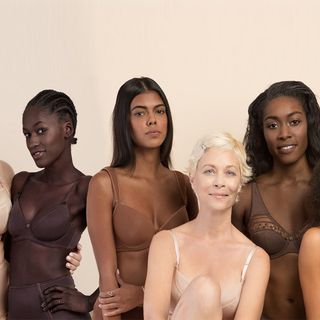A new study has confirmed our first impressions are rife with gender bias, finding that as the masculinity of a face increases, so does the degree of competence people perceive at first glance. Unless you’re a woman — then it starts backfiring, after a certain point, and the more ‘mannish’ you look the less competent people think you are.
Researchers say this gendered snap judgment could affect everything from whom we hire, to whom we vote for.
“Problematically, how competent someone appears does not guarantee their actual competence,” says DongWon Oh, a psychology researcher at Princeton University and first author of the study. “Needless to say, these gender biases pose a threat to social justice, creating unfair environments for everyone.”
Drawing from their previous research into the physical appearance of competence, Oh and team built a computational model that allowed them to alter faces by digitally enhancing certain features associated with competence. These enhanced faces, both men and women, were rated more competent, as well as more attractive. But that wasn’t enough for researchers, who had already determined the association between competence and attractiveness in earlier studies. They then used the digital tool to sap all attractiveness from the sample (presumably by editing in remnants of dinner into the teeth of the sample faces) to see what other factors influenced the perception of attractiveness.
Their finding: that when asked to rate these de-sexied faces as either male or female, participants were more likely to classify competent faces as male, and less-competent faces as female. When they further explored the variation in competence ratings between male and female faces, they found that more masculine male faces were rated more competent, full stop; and they found that more masculine female faces were rated more competent, until female faces got ‘too’ masculine-looking, at which point their competence ratings started decreasing.
Moral of the story? “Our research sheds light on the pernicious gender bias in how we perceive others — we judge masculine looking people as competent, a judgment that can affect our leadership choices,” Oh says.




